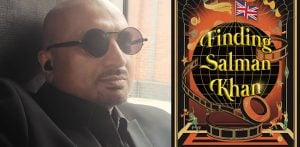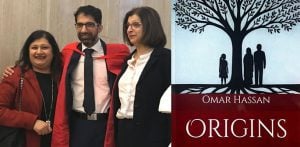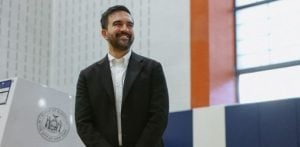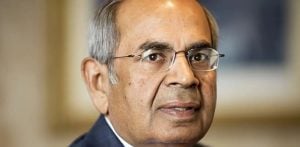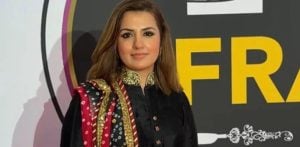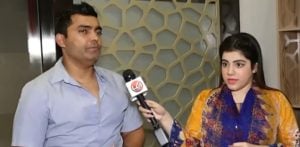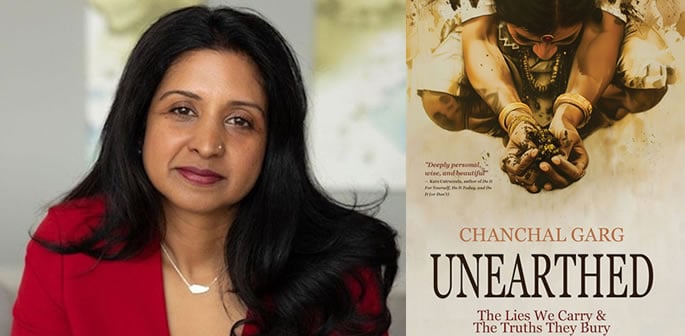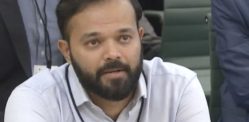"Writing Unearthed became part of my own leadership responsibility"
Chanchal Garg is no stranger to guiding others through transformation.
A speaker, author, and conscious leadership facilitator, she has spent seven years co-leading Stanford University’s most popular elective course on interpersonal dynamics while building a thriving six-figure coaching practice in Northern California.
Her memoir, Unearthed: The Lies We Carry & The Truths They Bury, turns that focus inward.
As an Indian daughter raised in America, Garg was taught the importance of traditional values. She devoted herself to her religion and culture, and the idea of one day becoming a good wife.
But when she sought belonging in the teachings of a charismatic spiritual guru revered by her family, she found herself trapped in a pattern of spiritual and sexual abuse that would take years to unravel.
The book draws on her years of learning how to reclaim authentic personal power to empower leaders, particularly women of colour, to set healthy boundaries, shift societal constructs, and connect across differences.
Through her writing, Garg bridges the deeply personal with the universal, offering a call to women everywhere, particularly those navigating South Asian cultural expectations, to confront silence, set boundaries, and claim their truths.
In an exclusive interview with DESIblitz, Chanchal Garg opens up about her journey, the making of Unearthed, and how her experiences now shape her mission to empower others.
Writing as a Form of Leadership
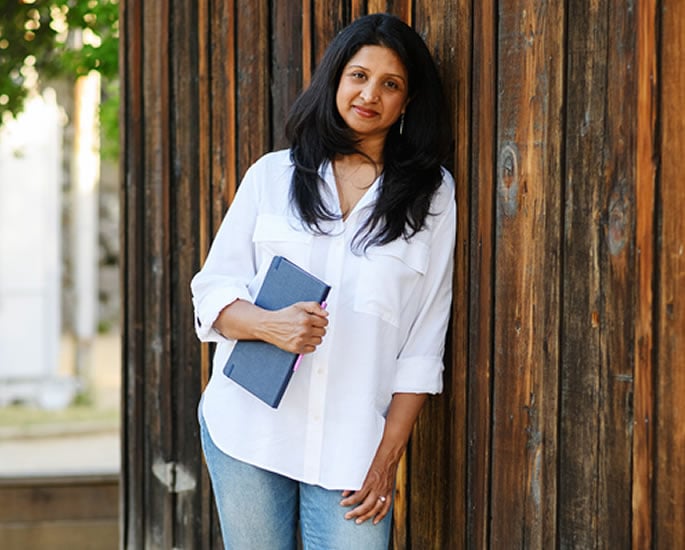
On what pushed her to write Unearthed, Chanchal Garg explains that it began with her work as a coach:
“As a coach and facilitator, I’ve asked countless women to excavate their own narratives and reclaim/own their voices.
“At some point, I realised it would be disingenuous to keep asking others to do something I hadn’t done myself.
“Writing Unearthed became part of my own leadership responsibility, modelling the kind of courage and honesty I invite in others.”
Pointing to timing, Garg says: “Earlier generations of South Asian women often carried their stories in silence out of fear, shame, or loyalty to community.
“More and more women in this diaspora are creating space for honesty, and there is more readiness for these conversations about power, voice, and belonging.
“Unearthed enters this moment intentionally, not just as my story, but as part of a broader generational shift toward naming truths that were once unspoken.”
Reckoning & Breaking Points
Raised in a household where duty and sacrifice were prized, Chanchal Garg recalls struggling to reconcile that with the values of self-expression she encountered in American schools and workplaces.
She says: “I don’t think there was one single moment; it was more like a series of reckonings.
“At home, duty and sacrifice were prized above all else, while outside, in American schools and workplaces, questioning and self-expression were encouraged.
“For a long time, I tried to live in both worlds, but the dissonance wore me down.
“The breaking point came when unquestioned devotion left me vulnerable to abuse. I began to see how easily loyalty can be manipulated when it goes unchecked, and I could no longer equate silence with love.”
But what deepened her clarity was motherhood:
“I couldn’t imagine passing down the same scripts of self-erasure to my children.”
“In my coaching work, I kept seeing those same patterns of ‘shoulds’ and sacrifices playing out in leaders’ lives.
“If I was helping others unearth their truths, I had to do the same for myself.”
Navigating Loss and Rebuilding Self-Trust
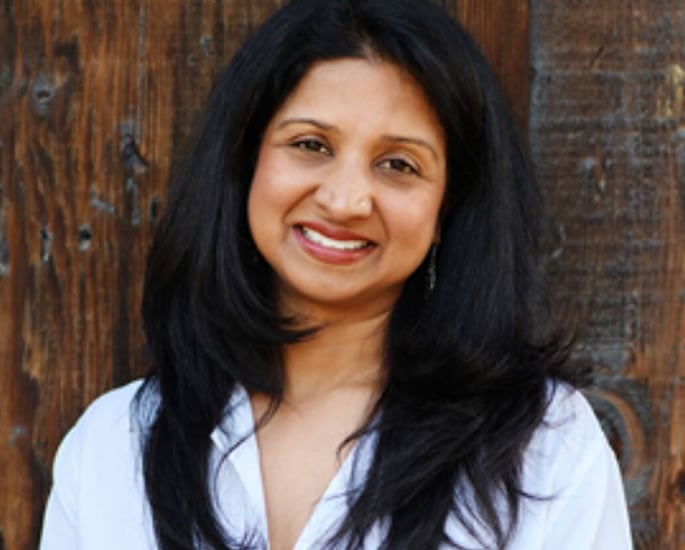
Leaving behind faith and community was, in Garg’s words, both devastating and liberating:
“When I left my faith and community, I didn’t have much external support to lean on.
“I remember telling myself, ‘You have all that you need within yourself’, even though at the time I wasn’t sure I believed it.
“It became a kind of mantra, and I faked it until, slowly, it became real.”
It was a difficult process, with “rage and grief” constantly being Garg’s “companions” at the time.
She elaborates: “They’re not emotions people typically welcome, so in many ways they forced me to walk my path solo.
“That solitude turned out to be essential. Without an external anchor to rely on, I had to learn how to trust myself, and that self-trust became the foundation of my healing.”
Through writing, she found a connection:
“Later, writing Unearthed became a way of carrying that inner work outward.
“Storytelling helped transform grief into meaning and solitude into connection.
“By sharing what I once thought I had to endure alone, I discovered a wider community of people who had also been navigating silence, loss, and renewal. It’s been its own form of liberation.”
Identity, Belonging, and the In-Between
For Chanchal Garg, reconciling her Indian and American identities required rejecting the binaries:
“First, I realised I had to let go of what others thought was ‘Indian’ or ‘American’.
“I didn’t need to succumb to those definitions as my identity is unique, even though it was born of the two cultures I was raised in.
“That recognition freed me to create my own definitions of what it meant to be Indian, American, and most importantly, myself.”
This shift, she says, turned what once felt like a burden into a strength.
Garg started by defining success on her own terms, taking values from “each culture that felt true to me”.
She continues: “My body became the bridge that allowed me to integrate both devotion and expression, both rootedness and freedom, without splitting myself in two.
“What once felt like a tension eventually became one of my greatest strengths.”
“Learning to navigate between worlds taught me how to hold complexity, translate across differences, and lead in spaces where belonging is not simple.
“It turns out that my in-between-ness was never a liability; it was a leadership practice, and ultimately, a gift.”
From Healing to Leadership
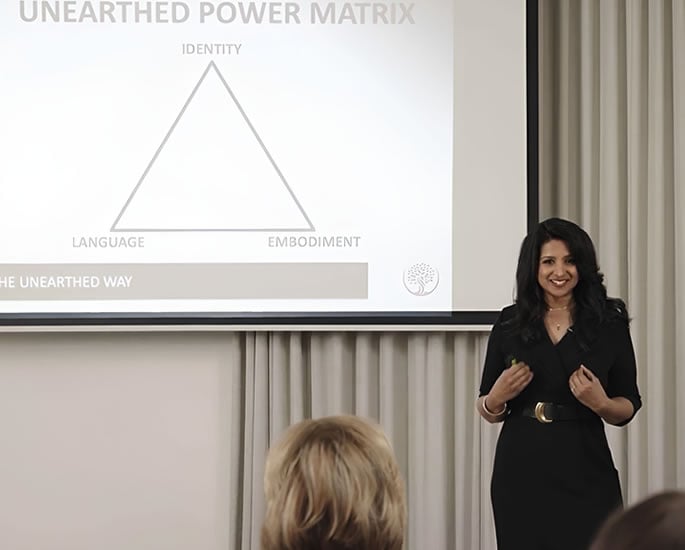
Chanchal Garg’s personal journey is inseparable from her work as a coach and teacher.
She says: “My lived experience informs my approach as a coach and facilitator.
“The frameworks I teach come from my own life as I’ve had to walk through the hard work of unearthing my own identity, voice, and presence.
“That integrity matters to me, because I don’t ask leaders to do something I haven’t already done myself.”
Highlighting the importance of embodiment, she continues:
“Power isn’t just cognitive; it’s how you carry yourself, how you hold presence under pressure, how your voice resonates.
“Motherhood made this work more than personal healing. It became a responsibility and privilege.
“I didn’t want to pass down silence and self-erasure to my children, and I invite leaders to consider the legacies they are creating too.”
And that message extends to those she taught at Stanford:
“During my time at Stanford, I’ve seen the same arc I lived myself in students.
“Leaders arrive with a lifetime of ‘shoulds’, and progress happens when they move from performing to choosing.
“The real breakthrough, for me and for my students, comes when we include the wisdom of the body and the heart. Same message, different embodiment, radically different impact.
“That integration of head, heart, and body is the parallel between my transformation and my coaching: it’s where alignment becomes influence.”
What’s Next

Asked what she hopes readers, particularly women who may feel silenced, take away from Unearthed, Chanchal Garg is clear:
“The message I hope women take away from Unearthed is that their voice is already enough.
“We don’t have to keep waiting for permission or polishing ourselves into acceptability.
“When we begin to trust ourselves, not just in our heads, but in our bones, the embodiment follows naturally.
“That trust shapes how we show up, how we speak, and how others experience us.
“When a woman speaks from that place of deep self-trust, sharing her story becomes an act of leadership.”
“It’s not just about her own healing; it opens a doorway for others to claim their truths as well.
“That’s the ripple I want Unearthed to spark, women moving from silence into self-trust, and from self-trust into collective change.”
And looking ahead, Garg says Unearthed is just the beginning:
“My hope is that by sharing my story, I create space for others to unearth theirs because that’s where real change begins.
“What’s next for me is about turning that spark into practice.
“I’m creating retreats and frameworks drawn from both my personal journey and my professional experience, so leaders can lead from their true selves rather than from a formula of leadership that was handed to them.
“It’s not just a book; it’s a movement toward deeper authenticity and presence in how we live and lead.
“While I have a vision for where this work could grow, I’m also intentionally leaving room for the unknown.
“Part of practising what I teach is trusting possibility and allowing the next chapter to emerge as I continue to walk this path alongside the people I serve.”
With Unearthed, Chanchal Garg has transformed years of silence, grief, and reckoning into a memoir that is both testimony and guide.
“Her story reflects not only her personal liberation but also a generational shift among South Asian women who are refusing to remain bound by inherited silence.
For readers, particularly women who have long felt voiceless, Garg’s message is clear: the voice is already enough, and using it is an act of leadership.
What lies ahead for her is an expansion of this work. Retreats, frameworks, and collective spaces are in development, but Garg insists she is also leaving room for possibility.


